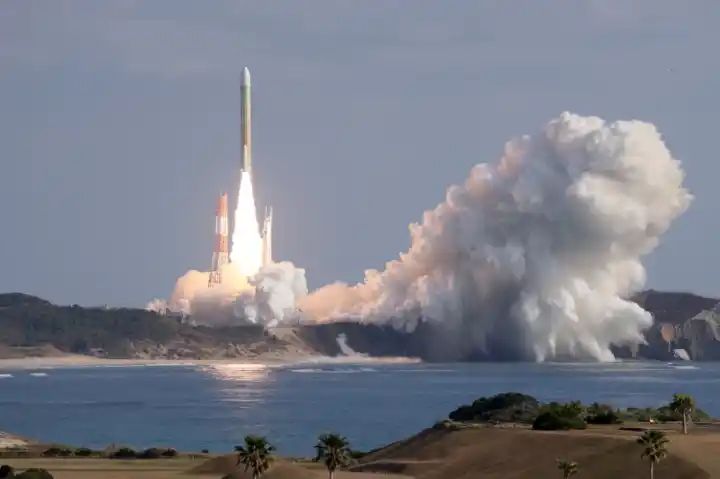Japan’s space agency successfully launches next-gen H3 rocket

The Japanese Aerospace Exploration Agency (JAXA) announced the successful launch of its new flagship space rocket, the H3, on Saturday, marking a significant achievement after its failed inaugural flight in early 2023. Developed in collaboration with Mitsubishi Heavy Industries, the H3 rocket demonstrated stable flight during its second test launch from the Tanegashima Space Center in Kagoshima (southwest).
The live broadcast on YouTube garnered around 200,000 viewers. The primary objective of this test launch was to ignite the second-stage engine as planned, propelling the rocket into Earth orbit. The control room erupted in jubilation 18 minutes later, when the success of the operation was confirmed. This mission carried a 2.6-ton dummy satellite named VEP-4, simulating the weight of the Earth observation satellite Daichi-3, lost during the failed H3 launch in 2023 when the second stage engine failed to ignite, leading to the satellite’s ordered self-destruction in flight.
The H3, Japan’s largest rocket in nearly three decades, is crucial for disaster management, with its Earth observation satellite playing a vital role.
Originally scheduled for launch in March 2021, delays occurred due to issues with the newly developed LE-9 engine and replacement parts. The successor to the H2A rocket faced setbacks in its planned Feb. 12 launch last year due to a flight system glitch and adverse weather conditions. Notably, it is the first space rocket utilizing the LE-9 engine in its first phase, designed to enhance fuel efficiency.





